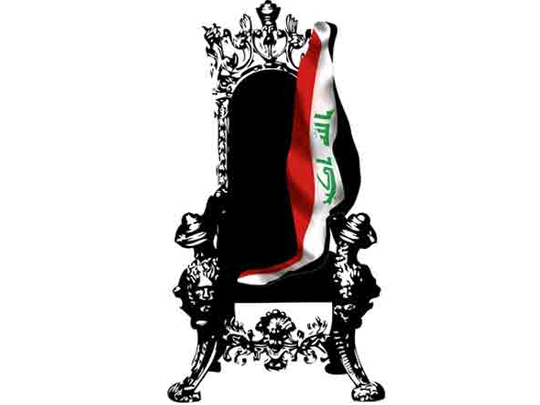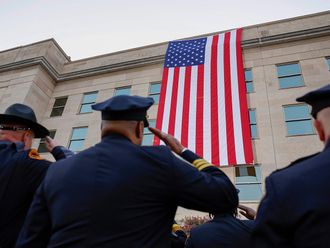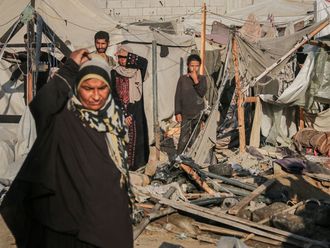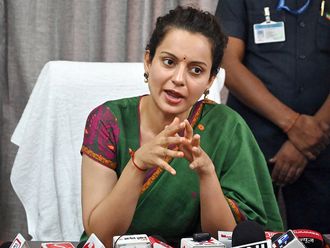
Nearly five months after parliamentary elections were held, Iraq is still without a government. Unfortunate as this may be, it is not entirely surprising because Iraq, seven years on from the 2003 war, is still a country in transition. Post-2003 Iraq is somewhat akin to post-1958 Iraq when Abdul Karim Qasim and other military conspirators overthrew a discredited (and British-backed) monarchic regime. As with Qasim's overthrow, the removal of the equally discredited but more brutal Saddam Hussain paved the way for various competing forces to move into the political vacuum.
In post-1958 Iraq, these groups were principally the Arab nationalists and socialists, the Kurds and the communists. Qasim himself cunningly played them off against each other as he sought to maintain his grip on power. In post-2003 Iraq, the principal actors — the Kurds, Sunni Arabs and Shiite Arabs — are looking, as ever, to expand or protect their interests.
Today's Iraq is much more democratic and accountable to its people than at any other point in its history, but, despite all that, no one quite knows what today's Iraq actually stands for.
For all of Saddam's atrocities and the failures of previous governments, Iraq has historically had some kind of identity based, at the very least, on Sunni-Arabist characteristics, even if this was forcibly imposed on the population by governments in Baghdad and their western backers. Today, however, there is no longer any meaningful construct to the term "Iraq".
The Iraq of today is federalist, centralist, Shiite, Sunni and Kurd, though with other minority ethnicities and religions too. It is also influenced from outside by Saudi, Iranian, Turkish, Syrian, US, UK and Jordanian interests. While all these might be components in some future vision for a pluralistic Iraqi state, the reality, at present, is that they are symptoms of dysfunctionality. The failure to form a government and the failure to form any serious cross-sectarian coalition for the elections are just two among many examples of the inability to amalgamate under a common banner of statehood, much to the detriment of the Iraqi people.
Despite the less-than-convincing and age-old rhetoric used by the main players — in particular the often-used line about "working in Iraq's interest" — it is doubtful whether any political force sincerely believes in the construct of an Iraqi state. So far as the Kurds are concerned, for example, post-2003 Iraq has been a country of convenience rather than substance, historically forced upon them without much choice.
Empty words
Across the political spectrum, "working in Iraq's interest" seems to mean engaging with and appeasing almost anybody and everybody that could give provide the keys to power. For example, Eyad Allawi and Moqtada Al Sadr, who have previously gone head-to-head in violent clashes and by all accounts were once deemed fierce enemies, recently met to discuss the possibility of forming a coalition.
Whether a coalition does materialise will, of course, come down to what was offered and conceded; individual ministries are offered and conceded on a whim and have essentially become fiefdoms of the various groupings. All this, of course, is irrespective of whether Allawi — who also met with Nouri Al Maliki's State of Law coalition — or Al Sadr's supporters actually want the two to form a coalition.
While it is important to ensure the rights of Iraq's various ethnic and sectarian groupings are protected, this does not mean that every political player has an unconditional right to be part of the government.
There is no legal requirement for the Iraqi Cabinet and other positions like the premiership and presidency to be proportionally allocated to each ethnic and sectarian group. But a "national unity" government is the more convenient option because the sad reality is that no group will step aside quietly — and the result is political paralysis.
If Iraqi decision makers and their regional partners fail to get their act together in the coming years, Iraq's existence as a single country will be increasingly questioned as its people continue paying with their lives for a state that was created, essentially, to protect British interests in the region.
Ranj Alaaldin is a Middle East political and security risk analyst based at the London School of Economics and Political Science.










